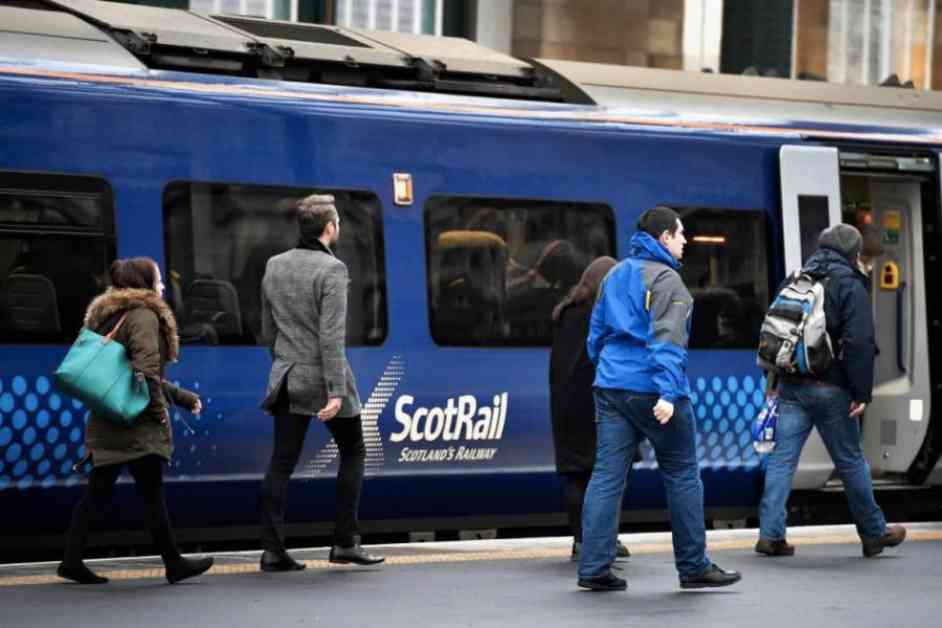Train services in Glasgow have been disrupted due to an emergency incident, causing inconvenience for commuters in the area. The disruption is a result of an ongoing situation that emergency crews are currently addressing at the station in Lenzie, East Dunbartonshire. As a consequence, ScotRail has announced that services between Glasgow Queen Street and Croy may be cancelled or delayed until the situation is resolved.
Emergency Incident Causes Disruption
The disruption to train services in Glasgow is a direct result of an emergency incident that has necessitated the presence of 999 crews at the Lenzie station. According to reports from National Rail, emergency teams are currently attending to a passenger who has fallen ill at the station. This situation has led to delays and alterations in services passing through the affected area, impacting the travel plans of many passengers relying on these train routes.
ScotRail’s Response
In response to the ongoing emergency incident, ScotRail has issued a statement informing passengers about the disruptions in services via Lenzie. The company has emphasized that the delays and alterations are necessary to allow emergency services to address the situation effectively. A spokesperson for ScotRail stated, “Due to emergency services dealing with an ongoing situation, services via Lenzie will be subject to delay and alteration at this time.” This transparent communication from ScotRail aims to keep passengers informed about the situation and manage expectations regarding the timeline for normalizing train services in the affected area.
Impact on Passengers
The disruption to train services in Glasgow has had a significant impact on the daily commute of passengers who rely on these routes for their transportation needs. With services between Glasgow Queen Street and Croy facing cancellations or delays, commuters are experiencing inconvenience and uncertainty about their travel plans. The disruption also highlights the importance of efficient emergency response protocols to address incidents promptly and ensure the safety and well-being of passengers and staff at train stations.
As the situation unfolds, passengers are advised to check for updates from ScotRail regarding the status of train services and any alternative travel arrangements that may be available. The disruption serves as a reminder of the unpredictable nature of emergencies and the need for coordinated efforts between transport authorities and emergency services to mitigate the impact on public transportation systems.
Collaboration with Emergency Services
In situations like the ongoing emergency incident in Glasgow, effective collaboration between transport companies like ScotRail and emergency services such as the British Transport Police and the Scottish Ambulance Service is crucial. By working together seamlessly, these agencies can ensure a coordinated response to emergencies, minimize disruptions to train services, and prioritize the safety and well-being of passengers and staff at train stations.
ScotRail’s prompt communication and coordination with emergency services demonstrate the importance of preparedness and response protocols in handling emergency incidents that may arise in public transportation settings. The company’s focus on keeping passengers informed and ensuring their safety during disruptions reflects a commitment to providing reliable and efficient train services in Glasgow and throughout the region.
Conclusion
In conclusion, the disruption to train services in Glasgow due to an emergency incident serves as a reminder of the need for effective emergency response measures and collaboration between transport authorities and emergency services. As the situation continues to unfold, passengers are encouraged to stay informed about updates from ScotRail and make necessary adjustments to their travel plans. By prioritizing safety, communication, and coordination, transport companies like ScotRail can navigate emergency incidents efficiently and minimize the impact on commuters and the public.

















